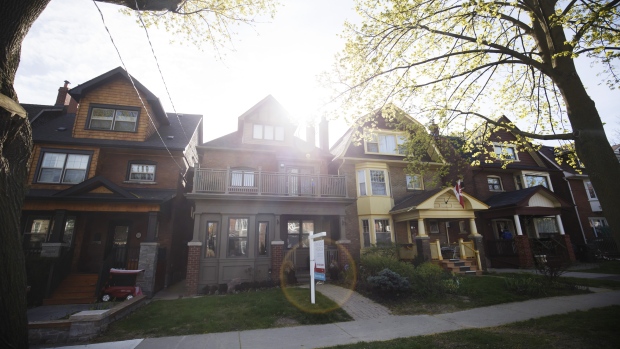Nov 2, 2018
Canadians' debt could be issue in next downturn: Former CMHC chair

Canada’s homeowners may be in for a rough go during the next economic downturn, according to the former head of the country’s federal housing agency.
“Canadians, historically, were debt-averse. That’s no longer the case,” former Canada Mortgage and Housing Corporation chair Bob Kelly told BNN Bloomberg in an interview on Friday. “My key ratio that I look at is personal debt-to-disposable income. In the year 2000 it was about 100 per cent. Now it’s getting closer to 170 per cent.”
Kelly said that Canadians have been adding more debt after the country emerged from a milder recession than its G7 counterparts between 2008 and 2009, meaning they could be more vulnerable if and when the economy regresses again.
“That 170 per cent is now the highest of the G7. So, that implies [that] the next downturn could be a little tougher on housing than in other major industrialized countries.”
Kelly said that the Canadian economy is benefitting from generationally-low unemployment numbers and a loonie that has held its ground above 75 U.S. cents for the majority of the last six months.
“We’re at that point in the cycle where things are almost too perfect in some regards,” he said. “I think it’ll take quite a bit to slow it down.”
Statistics Canada reported modest employment gains for September on Friday, but that data came coupled with a fifth consecutive month of slowing wage gains. Trade numbers released Friday also showed a continued decline in Canadian exports.
CIBC Capital Markets chief economist Avery Shenfeld warned that Friday’s data alone shouldn’t rush the Bank of Canada into further action on interest rates.
“On balance, this isn’t the kind of data the BoC will need to advance a rate hike into December,” Shenfeld wrote in a note to investors. “But there’s still another jobs report due before that decision date.”
The Bank of Canada raised its benchmark interest rate 0.25 points to 1.75 per cent on Oct. 24, removing language that suggested a “gradual approach” on further rate increases. Canada’s major banks responded the same day by increasing their prime lending rates 0.25 points to 3.95 per cent.
Kelly said that Canadian homeowners can survive the ascent of interest rates, as long as increases remain marginal.
“I personally don’t think there will be a lot of impact in terms of housing prices as rates slowly edge up,” he said.
“The only real issue will occur in the next downturn when people realize how much debt they’ve taken on.”







